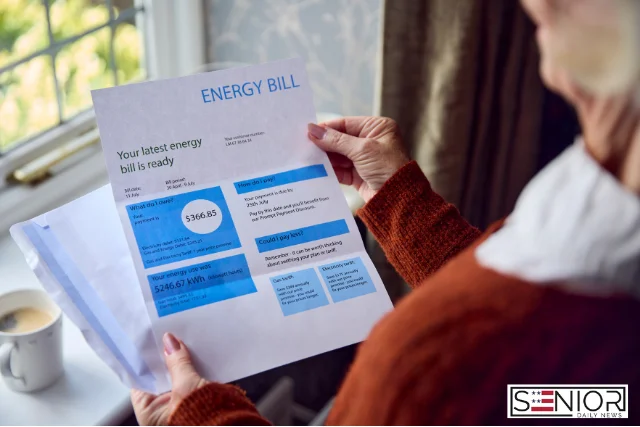How to Lower Your Home Energy Bills: Best Tips and Tricks

Managing household expenses becomes especially important as we get older and live on fixed incomes. One of the biggest recurring costs many seniors face is utility payments. Fortunately, there are many simple, practical ways to lower your home energy bills without sacrificing comfort. Whether you’re looking for small changes or bigger upgrades, the strategies below can help you save money while keeping your home cozy year-round.
Why Reducing Energy Bills Matters
Every dollar saved on monthly utilities can go toward essentials like healthcare, groceries, or leisure activities. Beyond the financial benefits, reducing your energy bills also contributes to a more sustainable lifestyle, lowering your home’s overall carbon footprint. For seniors, this often means maintaining comfort while finding smart, affordable solutions that don’t require too much effort.
Understanding What Drives Your Energy Bills
Before making changes, it helps to know where most of your energy goes. In the average U.S. home, the biggest expenses come from:
- Heating and cooling (about 50% of energy use)
- Water heating (about 15–20%)
- Appliances and electronics (about 15%)
- Lighting (about 10%)
When you know which categories consume the most power, it’s easier to target your efforts effectively.
Practical Tips to Lower Energy Bills
1. Adjust Your Thermostat Smartly
Even a few degrees can make a big difference. In winter, set the thermostat to 68°F during the day and lower it at night or when you’re away. In summer, 78°F is comfortable for most people while reducing cooling costs. Programmable or smart thermostats can automate these changes so you don’t have to think about it.
2. Seal Drafts and Improve Insulation
Small gaps around windows, doors, and vents can leak heated or cooled air, forcing your system to work harder. Weatherstripping and caulking are inexpensive fixes. Adding insulation in the attic or basement can provide long-term savings on energy bills.
3. Switch to LED Lighting
LED bulbs use about 75% less energy and last 25 times longer than traditional incandescent bulbs. They’re brighter, safer, and ideal for seniors who want reliable lighting throughout the home.
4. Use Appliances Efficiently
- Wash clothes in cold water when possible.
- Only run the dishwasher when it’s full.
- Unplug chargers and small appliances when not in use (they draw “phantom” energy).
- Consider upgrading to ENERGY STAR-rated appliances, which consume significantly less electricity.
5. Manage Water Heating Costs
Lower the water heater temperature to 120°F. It’s hot enough for everyday use but reduces wasted energy. Installing a water heater blanket and insulating pipes can also cut costs.
6. Maximize Natural Light and Ventilation
Open blinds or curtains during the day in winter to let in warmth. In summer, close them to block heat. Using ceiling fans can reduce the need for air conditioning by circulating cool air effectively.
7. Maintain Heating and Cooling Systems
Have your HVAC system serviced annually. Replace filters every 1–3 months to keep air flowing efficiently. A well-maintained system lasts longer and uses less energy.
8. Consider Renewable Energy Options
For homeowners, solar panels can be a wise long-term investment. While the upfront cost can be high, federal and state incentives may reduce the expense, and the payoff often comes in lower monthly energy bills for years to come.
9. Take Advantage of Utility Programs
Many U.S. utility companies offer senior discounts, free energy audits, or rebates for upgrading to efficient appliances. Check with your local provider to see what programs you qualify for.
10. Practice Seasonal Energy-Saving Habits
- In winter: Wear layered clothing indoors, use throw blankets, and cook warm meals that help heat the kitchen.
- In summer: Use lighter bedding, cook outdoors when possible, and keep doors closed to maintain cool spaces.
Bigger Upgrades That Pay Off Over Time
While small adjustments can lower energy bills immediately, larger upgrades can yield even more savings:
- Energy-efficient windows: Prevent drafts and insulate your home better.
- Smart home devices: Motion-sensor lights, smart plugs, and connected thermostats help cut unnecessary usage.
- Roof or wall insulation upgrades: Reduces long-term heating and cooling costs significantly.
These investments may also increase your home’s resale value while reducing monthly utility expenses.
Energy-Saving Habits for Seniors
For older adults, comfort and safety are just as important as saving money. Here are some senior-friendly tips:
- Keep rooms well-lit with efficient bulbs to prevent trips and falls.
- Avoid turning off essential medical equipment—ask your utility provider about medical necessity programs for reduced rates.
- Set reminders to check thermostat settings regularly.
The Long-Term Benefits of Cutting Energy Bills
Lowering your energy bills doesn’t just save money each month. Over time, the savings can add up to hundreds or even thousands of dollars per year. It also reduces stress, provides peace of mind, and ensures your home stays comfortable and safe no matter the season.
FAQs About Reducing Energy Bills
Q1: What is the quickest way to lower my energy bills?
The fastest methods are lowering thermostat settings, switching to LED bulbs, and unplugging unused electronics. These changes show results almost immediately.
Q2: Are smart thermostats worth it for seniors?
Yes, smart thermostats can be especially helpful since they adjust automatically, reducing the need to remember daily temperature changes. Many models are user-friendly with simple controls.
Q3: Do ceiling fans really save money?
Yes. Fans don’t lower the temperature but they circulate air, making you feel cooler in summer and allowing you to raise the thermostat a few degrees without discomfort.
Q4: How often should I replace HVAC filters?
Generally, every 1–3 months, depending on the filter type and whether you have pets or allergies. Clean filters keep the system efficient and help reduce energy bills.
Q5: Can renters lower energy bills too?
Absolutely. Renters can still use LED bulbs, smart plugs, draft stoppers, and efficient habits like unplugging electronics and adjusting thermostat settings within their lease agreements.
Image Source: Canva






